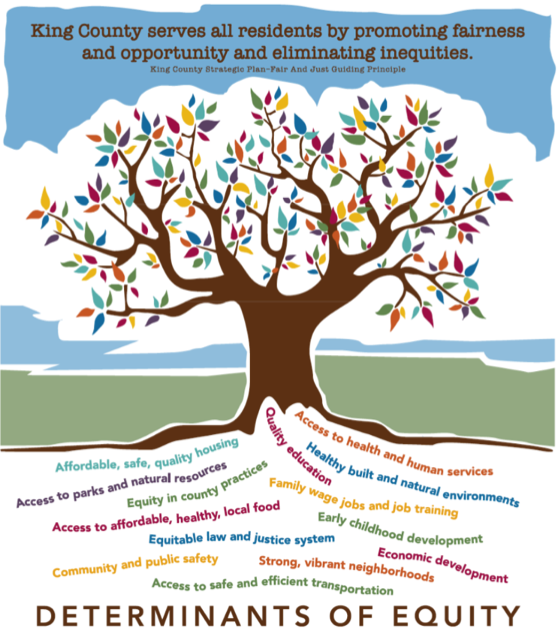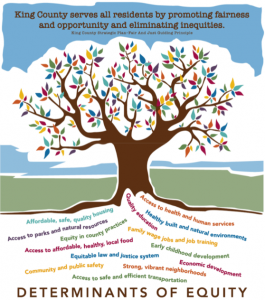Income Inequality in Our Community: The Journey Continues

Picture credit: King County Equity Impact Review
A few months ago, we hosted a speaker series at our Seattle Campus focused on “Reducing the Region’s Income Inequality.” We heard from public and private sector leaders in a panel that was hosted by Northeastern’s Joanne Goldstein, who recently stepped down as the State of Massachusetts’s Labor Secretary. Our King County leader on the panel, Policy Director Carrie Cihak, outlined how one agency approaches any policy to assess its impact on income inequality.
This was intended to help catalyze a regional conversation and identify people who are ready to move forward. As with all of the major policy events we host, I wanted to circle back and identify recent work done in this area to make progress as a region, and Northeastern’s role as part of our community. First, King County Executive Dow Constantine has proposed a countywide levy for November, entitled Best Starts for Kids which would focus resources on how we can best provide needed support and development for kids and parents in the first three years of life. Northeastern will be partnering with King County to host an informational panel on this topic later this summer – stay tuned. Additionally, the City of Seattle is conducting public hearings for its 20 year City Comprehensive Plan. This has spawned many recent articles about injecting social equity in to more of our city planning and zoning metrics. Access to safe and efficient transportation is another important ingredient to equity, and in recent weeks Mayor Murray has proposed a massive $900,000,000 Seattle Transportation Levy for consideration.

Personally, I was recently interviewed by the Boston Consulting Group to discuss income inequality, why it is a problem in this region and how we can reverse the discouraging trends. I have for some time felt that the widening gap between the have and have-nots in our region represents perhaps THE major challenge to the otherwise positive trends in our economy and quality of life in the Puget Sound region.
As with the Industrial Revolution 150 years ago, the Technology Revolution and computerization of many, many jobs traditionally filled by people has displaced many sectors of our middle class jobs. We as a region and nation need to grapple with these challenges in a positive manner.
While there are many books out now on this issue, the best prospect for finding rewarding jobs for displaced workers and our future citizens is education. We must provide training to retain, as needed, displaced workers and new citizens coming in to the workforce with the skills needed to survive and thrive in the economy of today and the future. This of course includes the K-20 spectrum of schools as well as the great work done by workforce development councils and many other entities who teach needed skills. The current logjam in Olympia on how to invest in our K-20 system is worrisome, of course, but it is too early to judge how that political process will end up.
In recent months we also had a speaker series – Change Agents in Education – which drove home the point it is not just about money, but we need as a community to put in place and develop transformational leaders at the community and governing level in our schools, if we hope to improve our state’s track record in K-12 education.
Income inequality is an issue we all need to work on if we are to show leadership and progress as a region and state.
Dean Washburn




